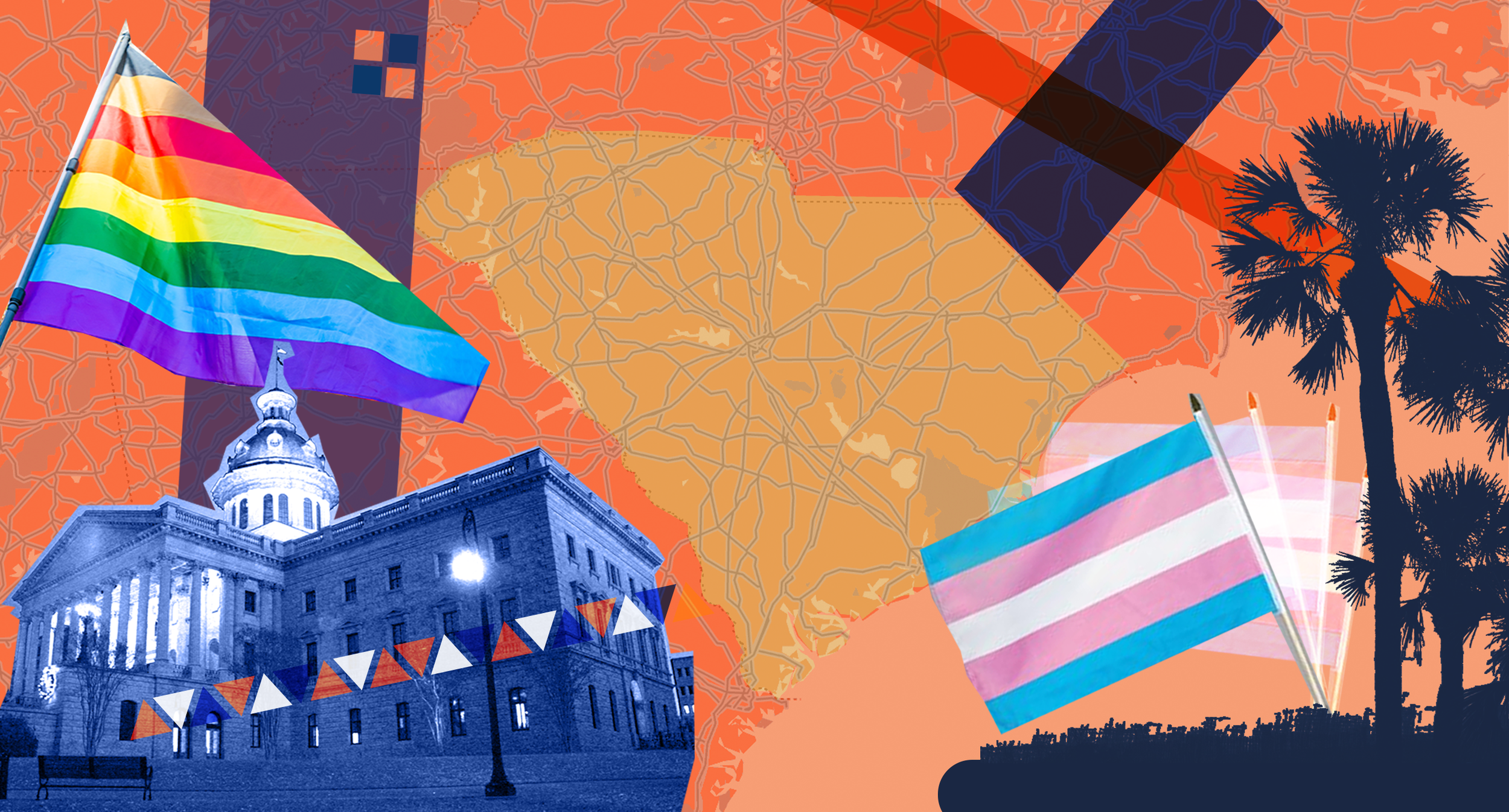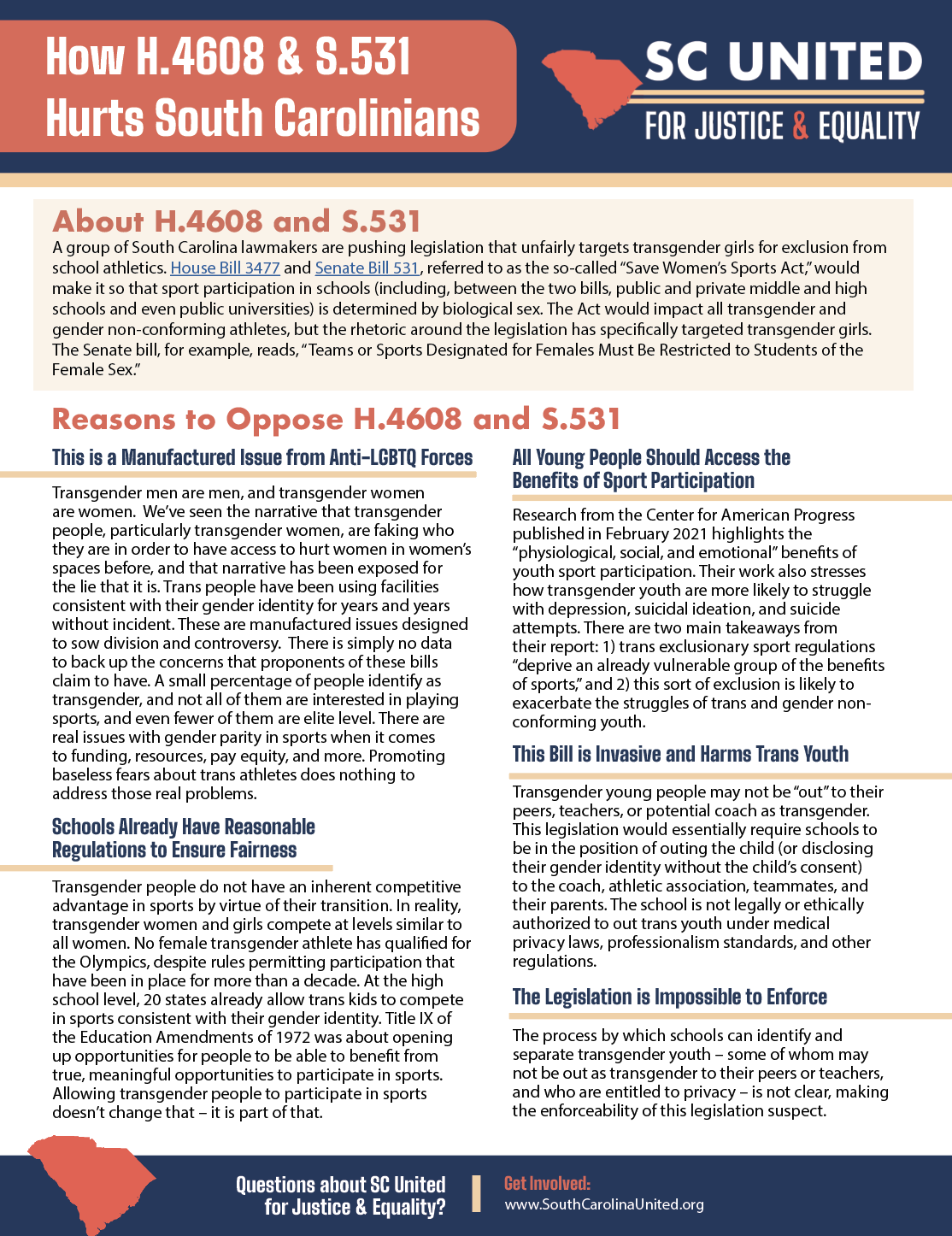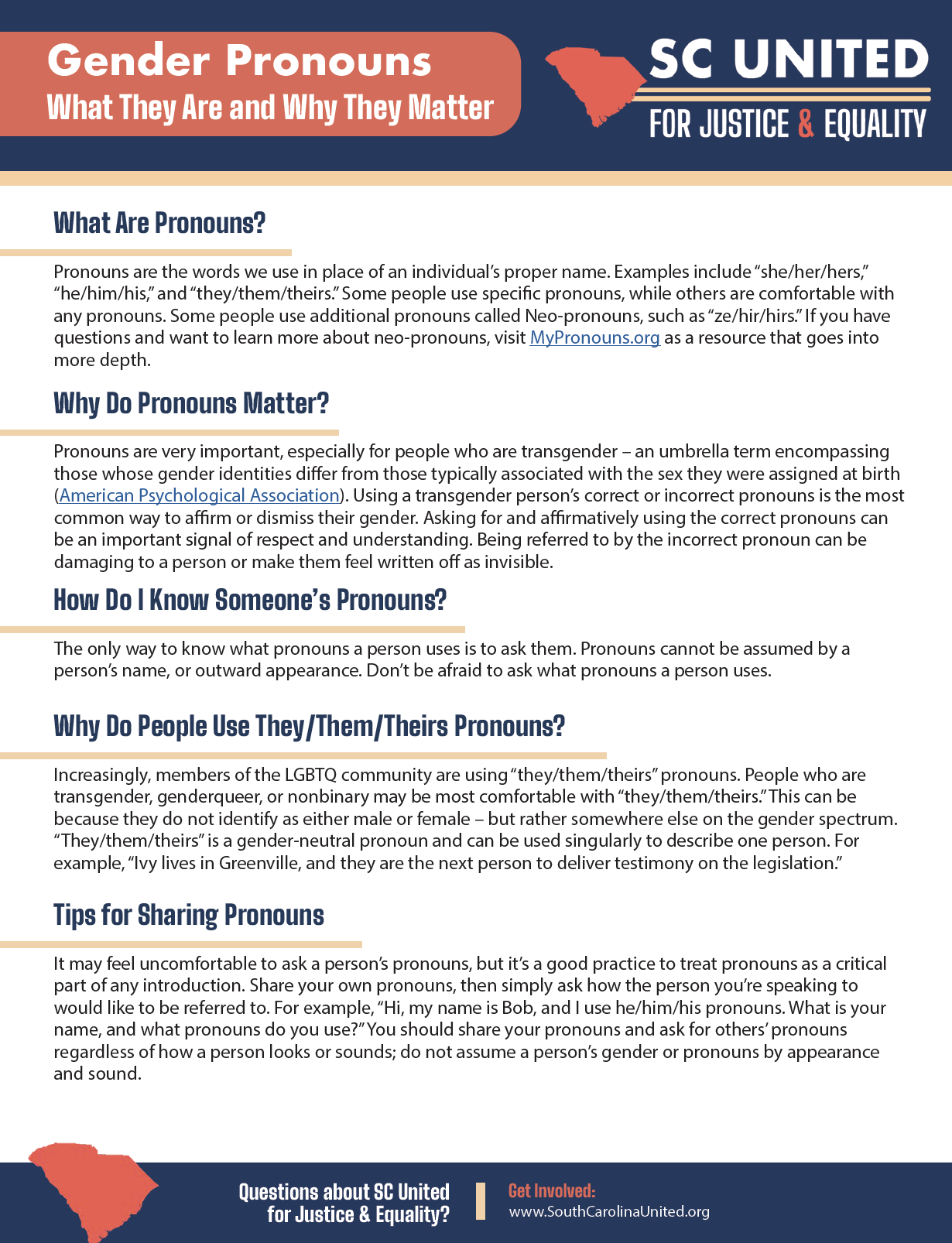
Get the Facts on Anti-Transgender Bills in South Carolina
Get the Facts on Anti-Trans Student Athletics Bills
Learn More About This Anti-Transgender Legislation in South Carolina
What Is H.4608 and S.531?
A group of South Carolina lawmakers are pushing legislation that unfairly targets transgender girls for exclusion from school athletics. House Bill 3477 and Senate Bill 531, referred to as the so-called “Save Women’s Sports Act,” would make it so that sport participation in schools (including, between the two bills, public and private middle and high schools and even public universities) is determined by biological sex. The Act would impact all transgender and gender non-conforming athletes, but the rhetoric around the legislation has specifically targeted transgender girls. The Senate bill, for example, reads, “Teams or Sports Designated for Females Must Be Restricted to Students of the Female Sex.”
Reasons to Oppose H.4608 and S.531
This is a Manufactured Issue from Anti-LGBTQ Forces
Transgender men are men, and transgender women are women. We’ve seen the narrative that transgender people, particularly transgender women, are faking who they are in order to have access to hurt women in women’s spaces before, and that narrative has been exposed for the lie that it is. Trans people have been using facilities consistent with their gender identity for years and years without incident. These are manufactured issues designed to sow division and controversy. There is simply no data to back up the concerns that proponents of these bills claim to have. A small percentage of people identify as transgender, and not all of them are interested in playing sports, and even fewer of them are elite level. There are real issues with gender parity in sports when it comes to funding, resources, pay equity, and more. Promoting baseless fears about trans athletes does nothing to address those real problems.
Schools Already Have Reasonable Regulations to Ensure Fairness
Transgender people do not have an inherent competitive advantage in sports by virtue of their transition. In reality, transgender women and girls compete at levels similar to all women. No female transgender athlete has qualified for the Olympics, despite rules permitting participation that have been in place for more than a decade. At the high school level, 20 states already allow trans kids to compete in sports consistent with their gender identity. Title IX of the Education Amendments of 1972 was about opening up opportunities for people to be able to benefit from true, meaningful opportunities to participate in sports. Allowing transgender people to participate in sports doesn’t change that – it is part of that.
All Young People Should Access the Benefits of Sport Participation
Research from the Center for American Progress published in February 2021 highlights the “physiological, social, and emotional” benefits of youth sport participation. Their work also stresses how transgender youth are more likely to struggle with depression, suicidal ideation, and suicide attempts. There are two main takeaways from their report: 1) trans exclusionary sport regulations “deprive an already vulnerable group of the benefits of sports,” and 2) this sort of exclusion is likely to exacerbate the struggles of trans and gender non-conforming youth.
This Bill is Invasive and Harms Trans Youth
Transgender young people may not be “out” to their peers, teachers, or potential coach as transgender. This legislation would essentially require schools to be in the position of outing the child (or disclosing their gender identity without the child’s consent) to the coach, athletic association, teammates, and their parents. The school is not legally or ethically authorized to out trans youth under medical privacy laws, professionalism standards, and other regulations.
The Legislation is Impossible to Enforce
The process by which schools can identify and separate transgender youth – some of whom may not be out as transgender to their peers or teachers, and who are entitled to privacy – is not clear, making the enforceability of this legislation suspect.
Who Opposes Anti-Transgender Legislation?
Because allowing trans girls to compete in girls’ sports doesn’t hurt anyone, advocates for women and girls in sports such as the National Women’s Law Center, the Women’s Sports Foundation, Women Leaders in College Sports, and others support trans-inclusive policies and oppose efforts to exclude transgender students from participating in sports.
Several major national sporting institutions – including the NCAA – have adopted policies allowing transgender athletes to participate in sports consistent with their gender identity, designed to guarantee there is no competitve advantage conferred by transition.
The International Olympic Committee (IOC) – an organization dedicated to athletic competition at the highest level – has even adopted a policy that allows transgender athletes to compete consistent with their gender identity.
The Legislation’s Unconstitutional Track Record
Legislation like this has been challenged in several states, and two federal courts have ruled it to be unconstitutional. In August of 2020, Chief U.S. District Judge for the District of Idaho David Nye, appointed by President Donald Trump, granted an injunction temporarily blocking the state’s bill from taking effect. He said that having one’s sex disputed was “humiliating” and a likely method of bullying. In West Virginia, U.S. Circuit Judge Joseph R. Goodwin blocked the state’s similar law, writing, “At this point, I have been provided scant evidence that this law addresses any problem at all, let alone an important problem. When the government distinguishes between different groups of people, those distinctions must be supported by compelling reasons.”
The bill also violates Title IX of the Education Amendments of 1972. In June of 2021 the Biden Administration issued guidance that, consistent with the U.S. Supreme Court’s 2020 ruling in Bostock v. Clayton County (which found that federal law prohibiting ‘sex’ discrimination also covers discrimination based on sexual orientation and gender identity’), schools that discriminate against LGBTQ students violate federal law. Colleges that comply with an anti-transgender sports policy like this risk their federal funding.
What Are Pronouns?
Pronouns are the words we use in place of an individual’s proper name. Examples include “she/her/hers,” “he/him/his,” and “they/them/theirs.” Learn what they are and why matter using this fact sheet.
Remember that practice makes perfect. Practice using pronouns, get used to sharing your own pronouns, and be OK with making mistakes. Eventually, this will come naturally and you’ll be consistently taking an important step toward treating everyone with decency and respect.



